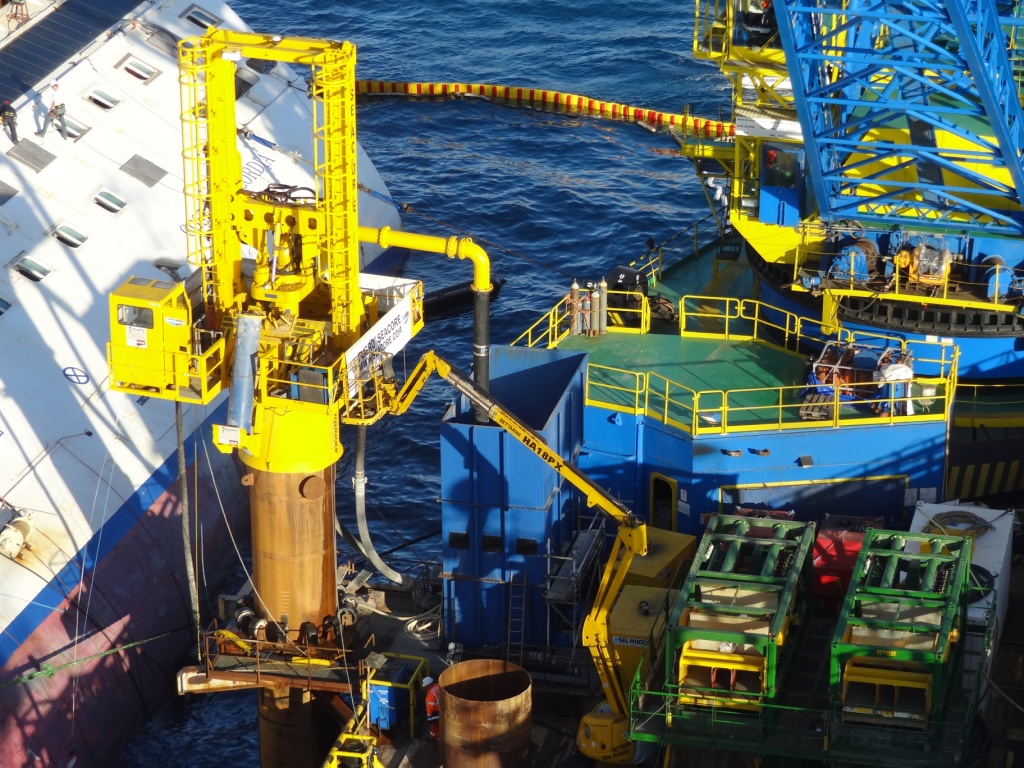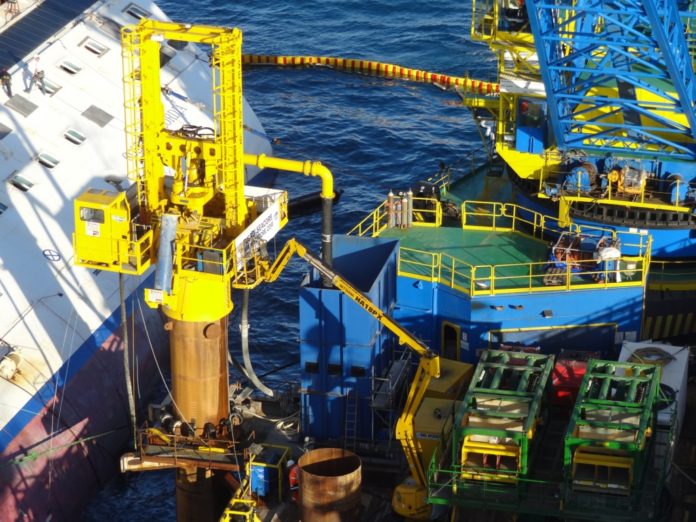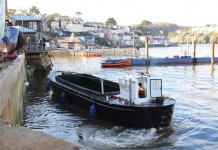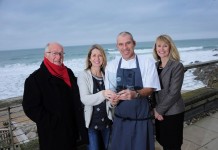As the wreck of the Costa Concordia completed its final voyage, the Cornish company that helped install the giant undersea platform enabling the stricken ship’s recovery declared the project one of the toughest in its 38-year history.
32 people lost their lives when the Concordia capsized off the Italian island of Giglio in January 2012, coming to rest on a steeply sloping rocky outcrop in 50 metres of water.
Falmouth-based marine drilling expert, Fugro Seacore, was enlisted to shore up the precarious site, installing a vast, underwater table bigger than three rugby pitches.

And as the refloated wreck reached its final resting place in Genoa on Saturday, the Cornish firm reflected on its role in a complex, international recovery mission.
The table was built of three platforms, each weighing more than five jumbo jets. To secure the legs, Fugro drilled precise holes up to 14 metres into the hard rock under the sea bed and inserted foundation piles 2 metres in diameter.
The installation needed to be designed and completed quickly, to prevent the wreck sliding to greater depths and allow work to begin on raising the liner before it broke up, which would have caused an environmental disaster.
But with the heavy platform sections needing to fit onto the legs exactly, accuracy was also paramount, with a margin for error of less than 10cm, and just one degree from vertical.
Fugro marine services manager, Sam Whitaker, explained: “We’ve done some tough jobs over the years, and this was up there with the toughest. Nobody has ever attempted anything like this before, so we had to design and build the whole thing from scratch.
“Quite aside from anything else, the 45-degree slope and the sheer hardness of the granite sea bed made drilling a real challenge.
“Thankfully, when it comes to drilling big, precise holes in granite, you can’t get better than a Cornish engineer.”
A 12-strong team from Falmouth, Helston and Penzance worked around the clock to complete the work, capturing waste from the drill to avoid damaging endangered underwater species.
Whitaker continued: “We were drilling up 600 cubic metres of waste every hour, and everything needed to be completely sealed – and ready to shut down at a moment’s notice – to protect the sensitive environment.
“It was a big ask. But we were proud to be involved, to lend our Cornish expertise to such an important, international effort, and hopefully to provide some closure to the families affected by this tragedy.”








This is the kind of story that Cornwall Council/CDC (Cornwall Development Company) should be promoting & marketing to the BBC, ITV & any other international media outlet.They should be shouting from the roof tops. Why no mention on the main news that it was a Cornish Company that built the platform?
It is a fantastic achievement, and makes one proud to live in my adopted county!
Congratulations Frugo Seacore!
Comments are closed.